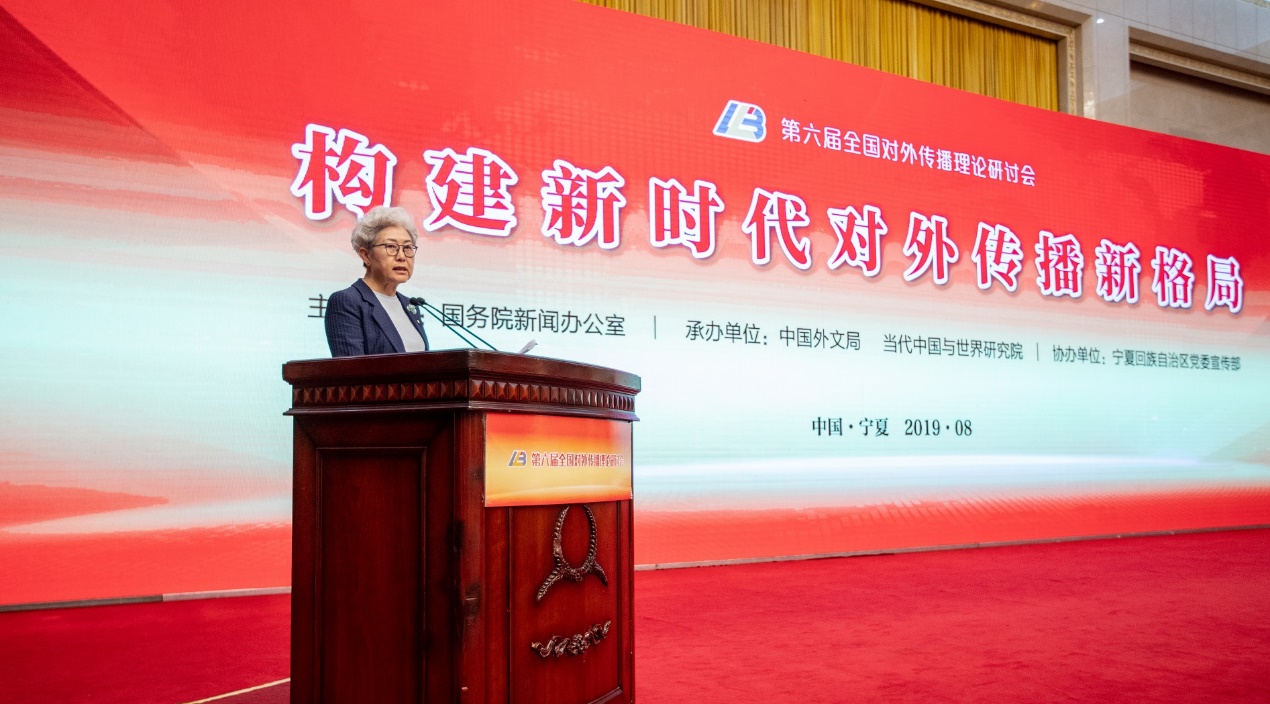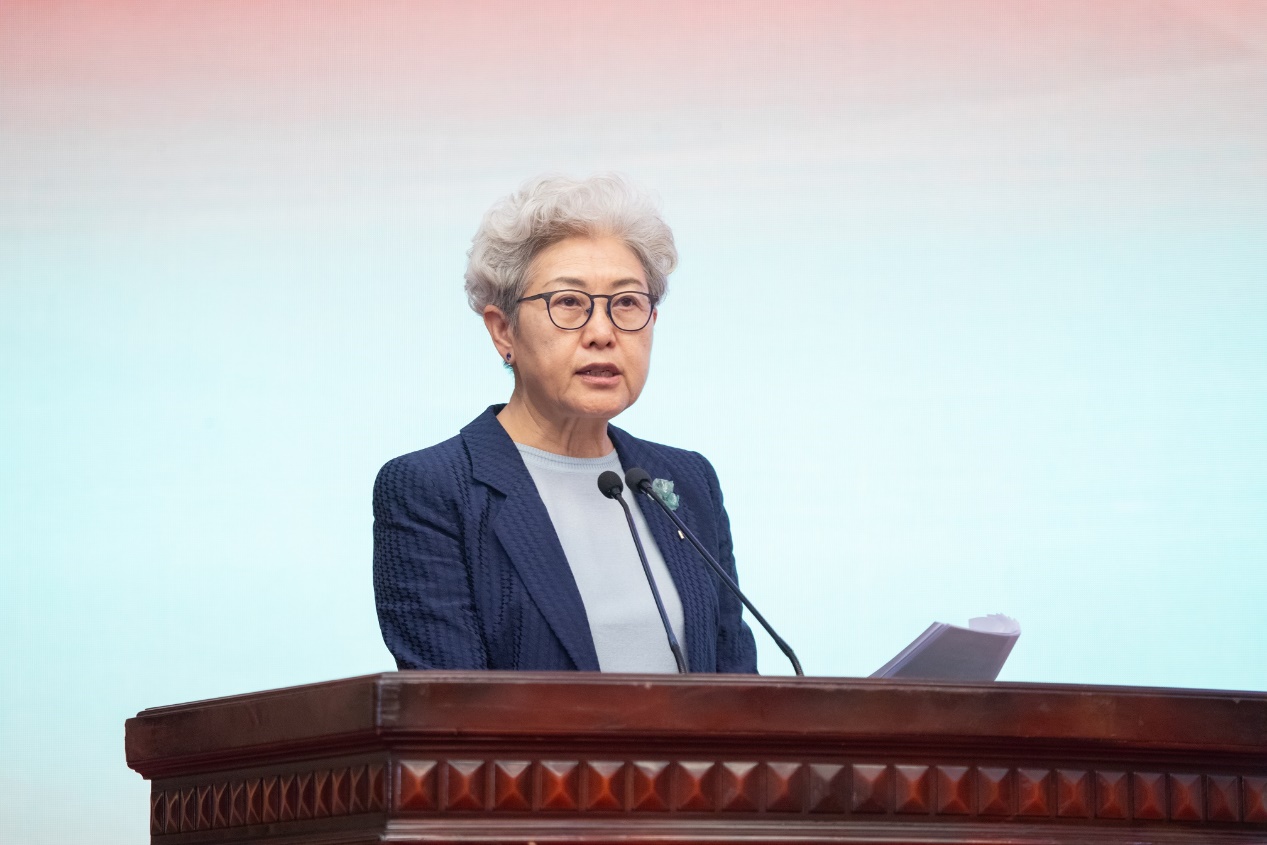On August 12, Fu Ying, Adjunct Professor of Tsinghua University and Director of the Center for International Strategy and Security of Tsinghua University (CISS), attended the 6th Seminar on International Communication, where she delivered a speech titled “Communication is a Dialogue between People”.

Fu said that the CPC Central Committee with Comrade Xi Jinping at its core attaches great importance to external publicity, as Xi cautioned us that “the ability to communicate equals the ability to influence, and a bigger voice brings more initiative” and required us to “make great efforts to strengthen the international communication capacity and accelerate the enhancement of China’s say in the world”. Fu also reviewed the solid progress that China has made in external publicity in recent years. She said that China has grown from a poor and backward developing country to the world’s second largest economy and is ever closer to the center of the world stage, but there is still a long way to go in enhancing comprehensive capabilities, especially those in external communication. The experience and progress over the years have given us the confidence to do more and better in a bid to shape China’s image in the world on our own.
Fu said that enhancing international communication capability is a systematic project. The CPC is engaged in a great struggle with many new historical characteristics, which involves improvements to both China’s hard power as well as soft power. At present, the pressure and challenges we are facing are complex, diverse and volatile. Therefore, we need to keep drawing on lessons from our practice and studies and strive for greater capabilities.

Fu held that to conduct international communication and win more say, we first need to enhance the awareness and ability for communication and make more Chinese images seen and voices heard in international media and forums. Second, we need to combine both macro- and micro-actions. It requires not only professional and strategic communication, but also communication at the people-to-people and public level. International communication cannot be conducted without clear political guidance. Communicators should earnestly study the will of the state and the plan of the central government. At the same time, they should also listen to and understand the world and give full play to their technical know-how based on the vision of building a community with a shared future for humankind. International communication is by no means bragging. As a developing country with fast industrialization, China will inevitably encounter problems of one kind or another. The advantage of our system is precisely that our party and government have not only the courage to face problems, but also the ability to solve them. Therefore, in international communication, we neither need to shy away from problems nor get afraid of others’ criticism. What matters is the ability to explain well our policy intentions and objectives, what challenges we are facing and the efforts they require. When we are questioned, it happens to be a good time for communication.
Fu noted that communication is essentially about human beings, that is, their dialogue and view-exchanging. To tell China’s stories, we should start with Chinese stories as real stories are the most convincing. Sometimes a small story can tell the truth and communication does not necessarily requires grand narrative. Our stories are told to flesh and blood, which means there must be ordinary people with their joys and sorrows therein.
In the end, Fu expressed her wish that the young people on the seminar could build up international awareness earlier. Fu said that the development of and changes in a major country will inevitably attract international attention, which is given a great weight in international politics. As it grows stronger, China faces a more complicated global picture. The central government stated that today’s world is “undergoing profound changes unseen in a century”. China is at the center of the changes. It is not only one of the driving forces of the changes, but also affected by various changes. In this era which is characterized by uncertainties, we need to start with ourselves by earnestly studying Xi Jinping’s thoughts on diplomacy and international communication, improving our international communication system with Chinese characteristics and “drawing a new picture of international communication for the new era” so as to achieve the goals of improving our global say and soft power proposed by General Secretary Xi.
The Seminar on International Communication, sponsored by the State Council Information Office and organized by the China Foreign Languages Publishing Administration and the Academy of Contemporary China and World Studies, is the most authoritative and influential high-end seminar in international communication as well as an important platform for theoretical research to serve international communication practice. The theme of this seminar is “To Draw a New Picture of International Communication for the New Era” and there are eight sessions including “external publicity of Xi Jinping Thought on Socialism with Chinese Characteristics for a New Era”. (End)
《Communication is a Dialogue between People》(
)。
